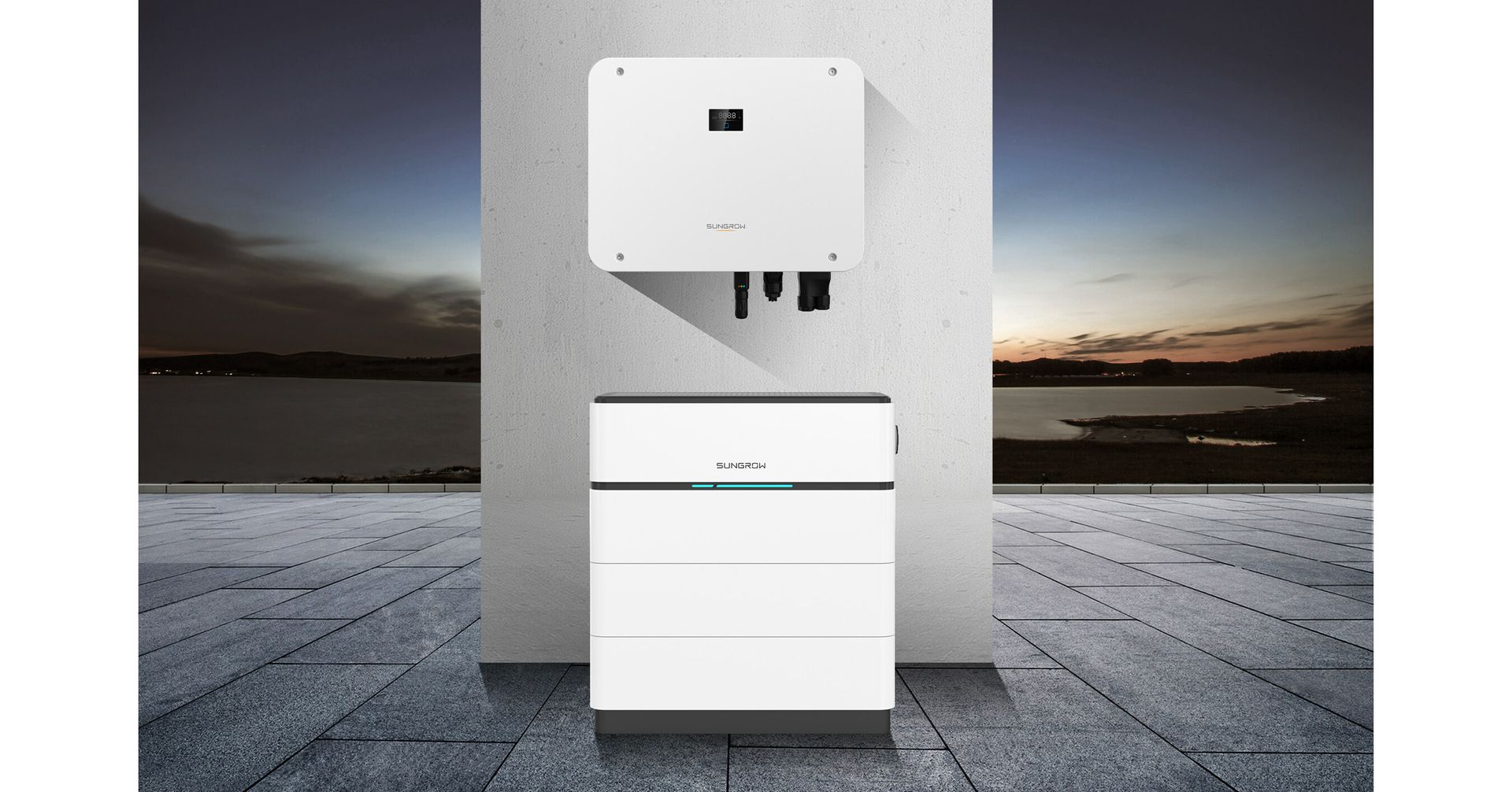“Should I get a solar battery?” – said basically everyone
“Should I get a solar battery?” – said basically everyone
Whether you’re a homeowner or a business owner, you’ve probably wondered:
- "Should I get a solar battery?"
- "Are solar batteries worth it?"
- "How much more will I save with a solar battery?"
In this guide, we’ll get into the savings and benefits of solar batteries. But first, let’s talk about something even more important: energy resilience.
Solar batteries and their impact on energy resilience
Without a solar battery, your solar system will not work when the grid goes down.
Yes, even those beautiful panels on your roof won’t do a thing.
Here’s why: New Zealand regulations require grid-tied solar systems to shut off during outages. This prevents power from flowing into the grid and potentially harming workers repairing the lines.
But solar batteries? They’re a game changer. They allow your system to keep running when the grid is down, thanks to built-in technology we’ll dive into shortly.
So, ask yourself: Do I need power resilience for my home, business, or family?
- If your answer is a resounding YES, great! We can help you by designing the ideal solar system that ticks all the right boxes, including price.
- If you’re unsure, keep reading—we’ll help you weigh the benefits.
How solar batteries enable partial or full home backup when the grid is down
Approximately 30% of NZ solar systems have batteries. And some of them allow the home or business to remain operational when the grid goes down.
Without getting too complicated, the reason only some solar & battery systems continue to operate in an outage is due to how they’re wired into the switchboard on the premises.
Some solar batteries connect directly to the solar inverter. These systems are titled ‘Hybrid’ systems.
Other batteries have the inverter and backup functionally all in house. (The new Tesla). You could almost call the new Tesla a ‘Hybrid Battery.’
Keeping it simple; most Hybrid Solar Systems have two outputs.
1. The everything output (when the grid is on, solar covers all daytime loads, provided there is enough sunshine and/or storage and output capability with the battery).
2. The backup / crucial load output.
When the grid goes down, the inverter switches from ‘the everything output’ to ‘the backup output’.
Until most recently, the backup output was typically capable of delivering 20-60% of a typical homes power requirements. This meant that in a grid outage, some of the appliances in the home wouldn’t operate when the grid went down. However, crucial appliances such as lights, Wi-Fi and fridges would stay powered.
There are now inverters on the market than can backup a whole house. This isn’t true for every home, but if you’re in the city and don’t have any pumps, it’s absolutely possible.
Depending on how much you spend on your solar and battery system, you may opt to get a system that offers partial home backup. Or, you may opt to get lots of panels and an inverter capable of backing up most, or all of the house.
The reality of whole home backup
In 2023 & 2024, most of the inverter manufacturers released inverters than can deliver around 45 amps of continuous power deliver in a power outage. 45 amps adds up to more than 10kWh of continuous output.
10kWh is a ton. There are not many homes that pull more than 10kWh at any given time.
But of course… A large inverter capable of immense backup current require lots of panels and lots of batteries! It wouldn’t be unreasonable to spend more than $35,000 on a system capable of backing up most or all of your home.
Rurally, the story changes a little. Things can get more expensive, and complex. But no need to worry as we’ll help you navigate it all.
Getting clear on how solar saves money
Buyers must wrap their head around the savings from solar before truly understanding if a solar battery is worth their money.
Further to that, let’s assume a 17-panel solar system.
- 17 panels installed in 2024 / 2025 = approximately $15,000
- 17 x 440w panels = 7.5kW peak power output
- Annual production = 10,000 kWh
If the home owner is mostly at work during the day, they’re probably likely to use about 35% of the solar energy, as their home doesn’t use a ton of power during the day. Of course, during weekends, and summer time when the sun shines from 7am – 7pm, they’ll make the most of it.
The savings from solar are tied directly to the home owners power rates. On average, kiwis are paying about 27c for power. This is including GST.
- 35% of the solar equates to some free power for the home owner! And this saves them about $945 over the whole year.
- (35% of 10,000kWh of solar generation, multiplied by 27c).
And how about the rest of the solar? The energy that the home doesn’t use?
Well, the power company buys it from the home owner.
As at November 2024, Genesis pays 12c. Powershop pays 13c. Meridian pays 17c. Ecotricity pays 21c at peak times.
So, let’s take a conservative average of 14c.
- 65% of the solar gets bought by the home owners power company!
- Solar buyback credit - $910 over the whole year.
- These ‘solar buyback credits’ are applied directly to their energy bill.
- (65% of 10,000kWh of solar generation, multiplied by 14c).
- Spend $15,000 to save a total of $1,855 annually.
- Savings come in the form of free power, and solar buyback credits.
All in all, I hope the reader sees the logic.
How a battery saves you more money
As seen above, solar is already saving the home owner a lot of money. Even when 65% of the energy is sold to their energy retailer!
Despite the clear logic above, most kiwi’s think solar isn’t worth having if most of the energy gets sold to their energy retailer.
In fact, some solar companies make it their main sales pitch. “You must get a solar battery… Selling power to the grid is worth pennies… Don’t waste your money on solar without a battery…”
But we beg to differ.
Hear us out.
Batteries save you more money by storing energy during the day, to use it at night; or on a cloudy afternoon.
But how much more? Is it a lot more? A little more?
The answer is….
A LITTLE MORE.
How a Battery saves you a little more
Now, let’s talk about how a solar battery could save you a little more.
The idea is: If your power company buys back energy at $0.14/kWh, and your rate is $0.27/kWh, a battery saves you the difference:
- $0.27 - $0.14 = $0.13 per kWh stored
- For a 12kWh battery costing $15,000, storing an average of 10kWh/day would save you about $1.30/day—or $475/year.
- A 12kW solar battery should cost you about $14,000.
- At that rate, assuming no inflation, it would take 29 years for the battery to pay for itself.
- Good batteries are expected to last 15 – 20 years, but are only warranted to have a capacity of 60 – 80% at year 10.
If you want a solar battery, we’ll help you get a great one!
And we’ll be incredibly transparent with you on the savings and payback.
We’re not saying ‘don’t get a solar battery.’
We’re simply providing a framework for you to evaluate the cost and benefit.
Is there another way? Can free power hours be utilized?
- Some energy retailers offer free or discounted power during certain hours.
- Most batteries let you set charging and discharging times, so you could charge your battery during these cheap or free power hours.
- While these plans often come with higher daytime rates, solar users don’t buy much daytime power anyway—so the savings can add up.
- We can help you model this to see if it’s worth it for you.
Is It Safe to Charge a Battery at Night?
Many of our clients raise concerns with battery safety. They wonder if their battery will catch fire.
Fact is, the risks are minimal, almost zero. There’s definitely more risk that a cheap phone charger from Temu will cause a fire in your home.
However… While the risks are practically zero, there is still a risk. So, here’s the real question:
Are you comfortable having a battery charge at full capacity while you’re sleeping?
Your answer depends on your appetite for saving money, and the risks you're willing to take for an extra penny!
Conclusion: Should You Get a Solar Battery?
We’re not saying “don’t get a battery.” But it’s important to weigh the costs and benefits carefully.
If energy resilience matters to you—or if you want to explore all the ways to save—we’ll guide you every step of the way.
Many of our clients opt for smaller solar batteries. Read more here.
Leave your details below to start your solar journey. Expect great advice, expert system design, and competitive quotes!
Save time & Money; book a solar broker to
We will get back to you as soon as possible.
Please try again later.



